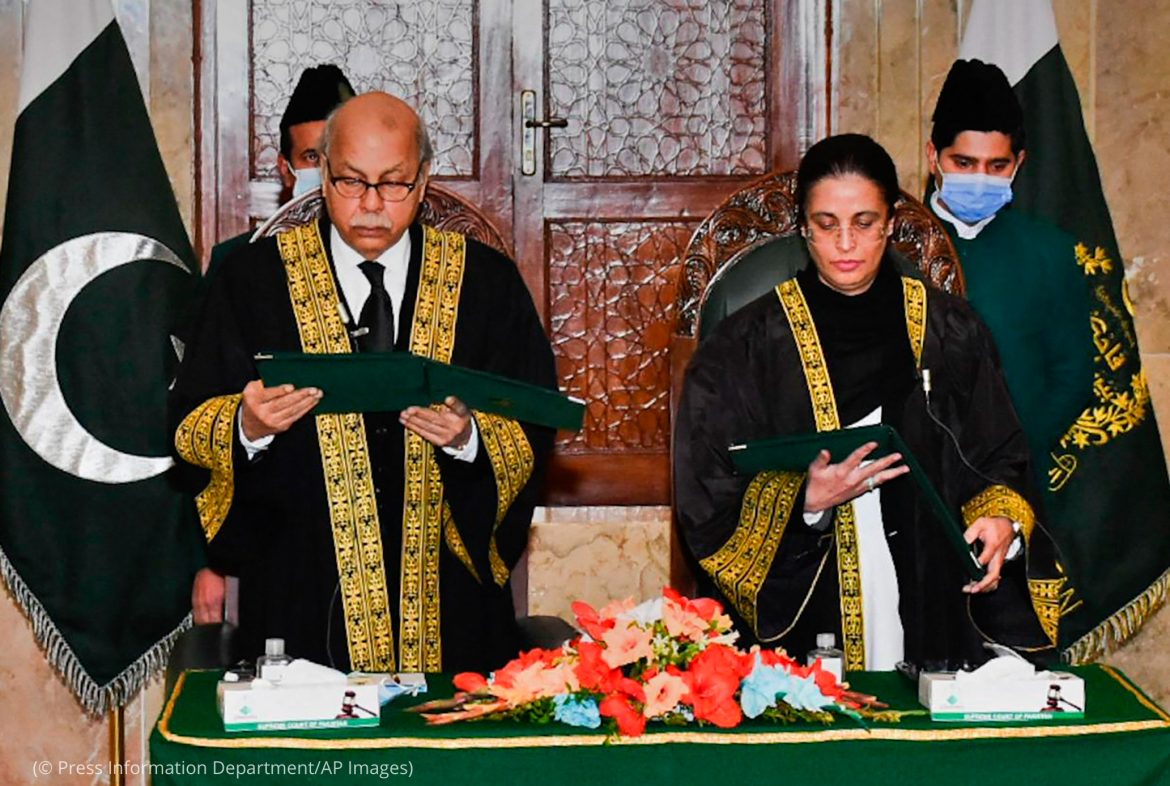- Only 5.5% of the 126 judges in Pakistan’s superior courts are women, highlighting a significant gender disparity in the judiciary.
- Cultural norms and gender stereotypes contribute to hindering women’s participation in the workforce, particularly in leadership roles such as judgeships.
- Gender diversity is crucial in the judiciary as women judges bring unique perspectives and experiences that can contribute to more balanced decision-making.
- Efforts are needed to promote gender equality in the judiciary, including policies to increase the recruitment and retention of women judges and challenging gender stereotypes within the legal community.
According to the LJCP report, out of the 126 judges serving in the superior courts of Pakistan, only 7 are women. This represents a mere 5.5% of the total judicial strength, highlighting a significant underrepresentation of women in the judiciary.
In Pakistan, the judiciary plays a crucial role in upholding the rule of law and ensuring justice for all citizens. However, a stark gender disparity persists within the country’s judicial system, particularly in the appointment of women to senior judicial positions.
The low number of women judges in Pakistan’s superior courts reflects broader societal challenges.
These include cultural norms and gender stereotypes that hinder women’s participation in the workforce, particularly in leadership roles. Despite efforts to promote gender equality and empower women in various sectors, the judiciary remains largely male-dominated.
The lack of gender diversity in the judiciary has implications for the delivery of justice, as diverse perspectives are essential for a fair and inclusive legal system. Women judges bring unique insights and experiences to the bench, which can contribute to more holistic and balanced decision-making.
To address the gender disparity in the judiciary, concerted efforts are needed. This will promote gender equality and create a more inclusive judicial system.
This includes implementing policies to increase the recruitment and retention of women judges. Other than that, providing training and support for women in the legal profession, and challenging gender stereotypes within the legal community.
Furthermore, there is a need for greater awareness and advocacy to highlight the importance of gender diversity in the judiciary and its positive impact on the administration of justice. By fostering a more inclusive and diverse judiciary, Pakistan can strengthen its legal system and ensure that justice is truly accessible to all its citizens, regardless of gender.
Pakistan’s First Female SC Judge Ayesha Malik Featured in BBC’s 100 Most Influential Women’s List. Read the full story here:
Pakistan’s first female Supreme Court Judge, Justice Ayesha Malik has once again made us proud. She has been featured as one of BBC’s ‘100 Most Influential Women’.
Pakistan’s First Female SC Judge Ayesha Malik Featured in BBC’s 100 Most Influential Women’s List
Have something to add? Let us know in the comments section below.
For more news and updates, stay tuned to Wow 360.
